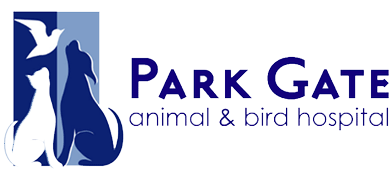Few of us can resist using baby talk with our dogs. Next time someone makes fun of you for it, you can tell them that science is on your side.
Commonplace among languages around the world, baby talk involves speaking to infants in a high-pitched, exaggerated way. It’s thought to help babies learn language, for example by making vowels clearer and strengthening social bonds with parents.
But dogs aren’t going to learn to speak, so does it make a difference when we talk that way to them? That’s the question posed by a study published this month in the journal Animal Cognition.
SPEAKING DOG 
In the study, scientists asked two people to sit with speakers in their laps that played recordings of their own voices.
“Dogs, we think, are very sensitive to changes in acoustic properties—things like the gender of the person, the size of the person—so that’s why the recording of the speech always matched the person that was holding the speaker,” says co-author Alex Benjamin, a Ph.D. candidate at the U.K.’s University of York.
Benjamin and colleagues then recruited 37 pet dogs from York, England. They leashed the pets and brought them into a room with the two people, where the animals heard two types of recorded speech—a normal, conversational tone and “dog-directed speech,” a sort of equivalent of dog baby talk with exaggerated intonation and words relevant to the dog, like “treat.”
The team then measured how much time the dog spent looking at each person as the recordings played, as well as how much time the canines spent with each person after being taken off leash. (Read how your dog picks up on your emotions.)
“The dogs spent more time looking toward the person using dog-directed speech,” says Benjamin. “And they chose on average to spend more time with the person who had recently been producing this sort of speech register.”
KNOW YOUR AUDIENCE
The results suggest dogs do seem to prefer the canine version of baby talk.
But why do we have the impulse to talk to them like babies? Interestingly, we don’t.
Previous research has found that baby talk and dog talk are slightly different—for example, dog talk doesn’t have vowel exaggeration.
This makes sense, since we don’t expect dogs to learn to say vowels. Parrot owners, on the other hand, do exaggerate vowels when speaking to their birds, some of which can imitate human speech.
“This suggests that we are sensitive to the linguistic ability of the animal or person we are talking to,” says Benjamin. “And it’s largely unconscious—people don’t realize they are doing anything different.”
MISMATCHED SPEECH
To test whether the study dogs were just getting excited by words that they knew, like “walk” or “treat,” the scientists also played recordings with mismatched content and intonation.
For instance, the canines heard phrases like “‘I went to the cinema last night,’ but said in the dog voice,” or “‘Oh you’re such a good dog, do you want to go for a walk?'” said in a flat, boring voice.
The dogs didn’t show preference for either type of mismatched speech, suggesting the results of the first experiment weren’t due just to familiar words or tone, but something about the combination of the two.
“Perhaps dogs use the intonation to initially attend to the speech, and then recognize whether the words you are using are related to them or not,” says Benj
NO SHAME IN BABY TALK
She adds more research is needed to see whether this preference is innate or learned—or some combination of the two.
“It could be that they respond more to this type of speech when you use it with them as a puppy, so they almost train you to keep using this kind of speech,” she says.
Juan Uriagereka, a linguist at the University of Maryland, College Park, notes that “research on interactions with other animals tells us as much about ourselves as it does about them.” (Learn how dogs are even more like us than we thought.)
“It would be interesting to test whether hormones like oxytocin, which facilitates contact in mammals of the same species, may be involved in the processing of ‘baby talk’ and ‘dog talk,’ respectively,” he says by email.
Adds Benjamin: “We’re not trying to argue that you have to talk to your dog in baby talk for it to love you.”
Interesting! That information from National Geographic will definitely help more dog and cat owners have fun with their pets without feeling ashamed! I know it will for me.
Come see us at Parkgate Animal Hospital, serving you in the Deep Cove/Seymour area of North Vancouver. You can reach us at Parkgate Village, call us at 604-929-1863, or email us at parkgate@telus.net.

